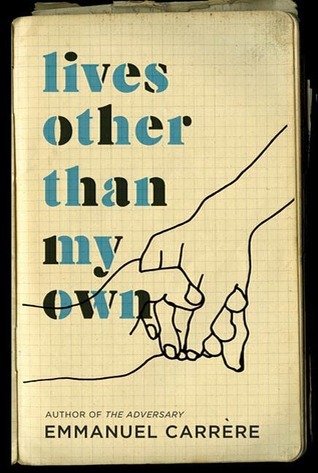More on this book
Community
Kindle Notes & Highlights
We did have that little girl in the end, and we still trust that we’ll live out our days together.
Interesting that he chooses to let us know from the beginning that they make it...at least to the present. Is it because things get grim quick and so he's letting us know from the start that there's some kind of happy ending here?
We were simply watching ourselves draw apart, without hostility, but with regret. It was too bad. For the umpteenth time I spoke of my inability to love,
This is not how I imagined breakups before Beth, as unlooked-for regrets without specific grievances. Also, interesting that he bears the blame for this orientation in the next sentences
my inability to love,
because his fax was very important.
knowing that they were living their last moments of happiness.
Philippe shook his head: impossible. Juliette and Osandi had been at the water’s very edge, they’d never had a chance. No chance at all. They found her at the hospital, among the dozens—no, already the hundreds of corpses the ocean had given back and that now lay, for lack of room, right on the floor. Osandi and her father lay there, too.
He definitely doesn't bother holding you in suspense with darkness -- we aren't left to wonder if there's actually a chance the father-in-law is wrong and the kids are alive
These ordinary annoyances, simply irritating in everyday life, become in this emergency both monstrous yet vital,
It’s a kind of receipt, stating simply, “Little white girl, blond, in a red dress.”
guilty conscience
Only yesterday evening they were like us and we like them, but something happened to them and not us, so now we belong to two separate branches of humanity.
watch. I wouldn’t admit it for the world but the truth is, I see the situation this way: my wife has gone off to live an intense experience with another man.
Philippe took me aside and asked, So, you’re a writer. Are you going to write a book about
but except at those moments when she was talking about Juliette’s fate, or when she wasn’t but I saw that she’d been crying, the truth is that I hardly thought about it at
That particular life on its way out had nothing to do with my life, in which everything seemed to be opening, unfolding. What bothered me the most was that worry was eating away at Hélène and thus keeping me (although hardly at all, actually) from freely displaying, in her presence, the slightly manic euphoria that cheered me all that spring.
narcissistic thrill,
Every so often she would get up to smoke a cigarette near the half-open window, and I would get up to join her. It was a nonsmoking room, so we used a plastic cup from the bathroom as an ashtray, with a little water in it so it wouldn’t melt. The water became a disgusting brew.
Patrice’s mother had read my book The Adversary (which Juliette had recommended to her, explaining that I was Hélène’s fiancé) and found it a hard story to read. I allowed as how yes, it was hard, and that it had been hard to write, too, and I felt vaguely ashamed of writing such hard things.
I try to imagine, as I write, how she’ll feel if she ever reads this book.
had written three or four books that gave form to what I was.
I was loved, yes, but I had not learned how to love—or hadn’t been able to, which is the same thing. No one had been able to rest in complete confidence in my love and I would not rest, at the end, in anyone else’s. That’s what I’d have said at the news of my impending death, before the wave hit. And then, after the wave, I chose you, we chose each other, and now nothing’s the same. You’re here, close to me, and if I had to die tomorrow I could say like Juliette that my life has been a success.
This condolence visit to a one-legged judge struck me as somewhat absurd, but all I had to do was go along.
Perhaps, quite simply, the desire to be of help. That’s a motive more mysterious to me than plain perversity.
It was like watching a film you love beside someone who’s less impressed,
A Christian when with atheists, he became violently anticlerical in Christian company,
We’re always pleased when people who love us pounce on our shortcomings as extra reasons to love us. From then on, he consented more and more often to agree with me.
True! This is why I don't mind--perhaps even enjoy-- that there's out family (both sides) finds unity in doing this to me. Also, interesting that the dude's behavior changes when it's good-naturedly pointed out to him
The cancerous cells are you, just like the healthy ones.
Why does she get to go ahead of me when I have so much to do in life, while all she’s got left is to die? He wasn’t ashamed of this harsh attitude—on the contrary, it fed his pride. Sickness revolted him, sick people did too, and all that had nothing to do with him anymore.
I don’t know if the preceding paragraph will appear in the book.


